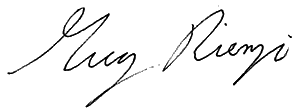
Image caption:
Greg Rienzi
Editor
My first dog was a brown, smooth-haired dachshund named Potlatch.
It's a Chinook term for a gift-giving feast. He was certainly that.
At the time, I was in my 20s and lived in New Haven, Connecticut. My family never owned a cat or dog, so this was my first proper pet. Devoid of any proper training and stubborn as a shirt wrinkle, Potlatch nevertheless possessed a natural skill set of enthusiasm, cuteness, and the innate burrowing talents of this badger-hunting breed. At night, he would jump into bed, scratch into the sheets, and sleep at my feet or nuzzle near my head with cold nose pressed to neck. His favorite toy was a tennis ball that he loved to chase, and there's no pure joy quite like a dachshund sliding on hardwood, his small legs overrunning the circular prey.
I lost the dog tragically one summer day, a car accident. I was disconsolate, and then empty. I hadn't thought about that day in years, but the memories came back to me while talking dogs and life with writer Jennifer Finney Boylan (p. 38). Like most dogs, Potlatch felt hard-wired to love and be loved, in the sincerest way possible. Feed me, play with me, take me to the park, and I'll be yours. As Boylan writes in her new memoir, finding a love so pure and honest—be it human or four-legged friend—is what life is all about. Do we run the risk of heartbreak after attaining such a love? Yes, but the rewards are immeasurable. When we lose a pet, Boylan says the knee-jerk reaction is never again—"There's no dog quite like Old Yeller." But we find another. Turns out humans, too, are hard-wired for love; it's just not anyone or anything that can elicit it from us.

Greg Rienzi
Editor
Give us your feedback by sending a letter to the editor via email to jhmagazine@jhu.edu. (We reserve the right to edit letters for length, style, clarity, and civility.)







